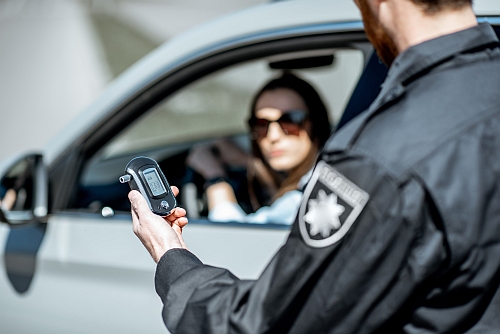- March 28, 2024
If you get pulled over for OUI or operating under the influence, chances are the police will ask you to take a breath test. If that happens, it’s important to know and understand your rights and the consequences of refusing a breathalyzer test in South Carolina.
Let’s take a closer look at your options below, and how an Orangeburg DUI attorney can help if you get charged with OUI.
Understanding South Carolina’s DUI Laws
South Carolina has a strict 0.08% blood alcohol concentration (BAC) limit. If pulled over for drunk driving and your BAC is 0.08% or higher, you’ll likely face charges for driving under the influence (DUI). The state uses breathalyzer tests and blood tests to check your BAC.
South Carolina has implied consent laws. This means if you’re pulled over for DUI, you automatically consent to taking a chemical test to determine your BAC. Refusing a breath or blood test will result in an automatic license suspension.
What Happens During a Breath Test?
So, the officer has asked you to take a breath test to determine if you’ve been drinking and driving. What exactly does this involve? The most common type of breath test is the breathalyzer, which measures the amount of alcohol in the air you exhale.
The officer will instruct you on how to provide a proper breath sample. This typically involves blowing into a mouthpiece for several seconds to provide an adequate amount of breath. It’s important to follow the instructions carefully and blow steadily into the device.
The breathalyzer measures the amount of alcohol in your exhaled breath to estimate your BAC. As you drink, alcohol from your blood is released into the air in your lungs. The device converts the amount of alcohol in your breath to determine your BAC, which is expressed as a percentage. Most states consider 0.08% and above to be legally intoxicated for drivers over 21.
What Happens If I Refuse the Breath Test?
If you refuse or fail a breath test in South Carolina, you’ll face severe penalties. For a first offense, your license will be suspended for 6 months. You’ll also face fines, DUI classes, and possible jail time. Subsequent offenses carry harsher penalties like longer suspensions, higher fines, and mandatory jail time.
While refusing a breath test may seem like a good idea to avoid providing evidence against yourself, it often makes the situation much worse. The penalties for refusing a test are typically just as severe as those for failing a test.
The best approach is to remain calm, know your rights, and consult with a DUI attorney as soon as possible. They can review the details of your case and help you navigate the complex legal process.
Alternatives to the Breath Test
If you refuse to take the breathalyzer test, the officer may still arrest you for OUI. However, refusing the test means the officer won’t have concrete proof of your blood alcohol level. This makes the charges more difficult to prosecute and may lead to reduced penalties or charges being dropped.
Of course, refusing the breath test is not without risks. The officer can still gather other evidence to support OUI charges, such as your driving pattern, appearance, speech, and performance on field sobriety tests.
As an alternative to refusing the breath test outright, you could ask the officer if you can take a blood test instead. Blood tests tend to be slightly more accurate, and the time delay in getting to a hospital for a blood draw gives your body more time to metabolize the alcohol in your system.
Consult with DUI Attorneys in Orangeburg, South Carolina
If you get pulled over for OUI and asked to take a breath test, it’s important to understand your rights and options. This is why it’s critical to consult with experienced Orangeburg DUI attorneys who know the ins and outs of South Carolina’s drunk driving laws. The attorneys at our office have been defending clients charged with OUI for years.
Contact us today at (803) 353-1969 for a free case review and to learn more about how we can help you move on from this difficult situation.


